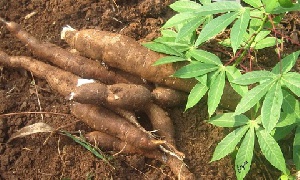Stakeholders in the cassava value chain on Tuesday converged in Accra to deliberate and validate a proposed High Quality Cassava Flour (HQCF) inclusion policy report.
The policy report validation is under the Ministry of Food and Agriculture (MoFA) and Food and Agriculture Organisation (FAO) project, “Strengthening linkages between small actors and buyers in the roots and tubers sector in Africa”.
Speaking at the workshop, Dr. Abebe Haile-Gabriel, the Deputy Regional Representative for Africa and Representative to Ghana at FAO of the United Nations said HQCF could become competitive to imported wheat flour.
Dr Haile-Gabriel noted that for the HQCF to be competitive, the issues of cassava productivity, postharvest management and value addition, appropriate and efficient processing facilities needed to be given the necessary policy push.
He said Cassava was one of five food security crops prioritized by Ghana's Food and Agricultural Sector Development Policy, adding that the country was the third leading cassava producer in Africa and sixth in the world.
Dr Haile-Gabriel noted that the cassava value chain contributed about 22 per cent to Ghana's agricultural Gross Domestic Products.
“With many people engaged in activities related to cassava it contributes significantly to incomes and rural livelihoods for both men and women.
With the right mechanisms and policy direction, the crop could be a valuable foreign income earner for the country at large,” he said.
On his part, Mr Seth Osei-Akoto, the Acting Director of Crop Service at the Ministry of Agriculture, said the government developed and implemented a number of initiatives to commercialise the cassava sector.
Mr Osei-Akoto said the initiatives, which included notable products such as the HQCF, cassava cakes, cassava chips and starch have brought about significant boost in the production levels of cassava.
He however said the scale of production, consumer acceptability and product quality is still at the lowest stage due to absence of a policy and legal framework for the use of these products and inadequate consumer awareness and emphasis on the commercial viability of cassava value chain.
Mr Osei-Akoto noted: “We see the development of an inclusion policy for HQCF as a key catalyst to drive the cassava industry”.
He said there was the need to create the enabling environment for HQCF value chain to thrive and that the Ministry would continue to provide the needed support for the industry for growth and development.
The inclusion policy was considering the possibility of partly substituting wheat flour in the preparation of composite flour, taking into consideration economic and social advantages, safety and quality standards as well as the legislative framework requirement.
Business News of Saturday, 16 September 2017
Source: ghananewsagency.org













